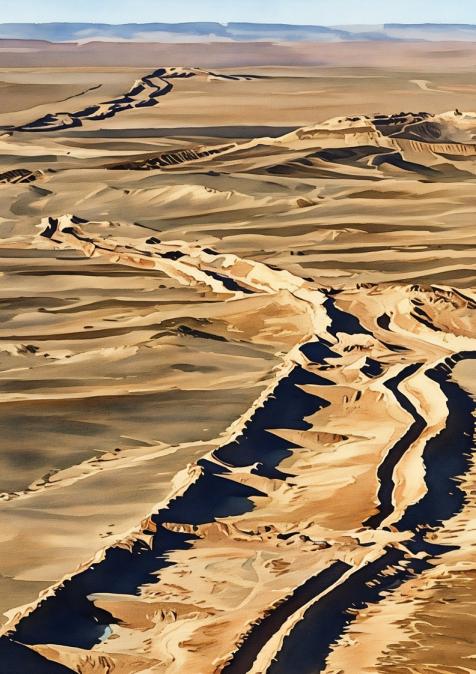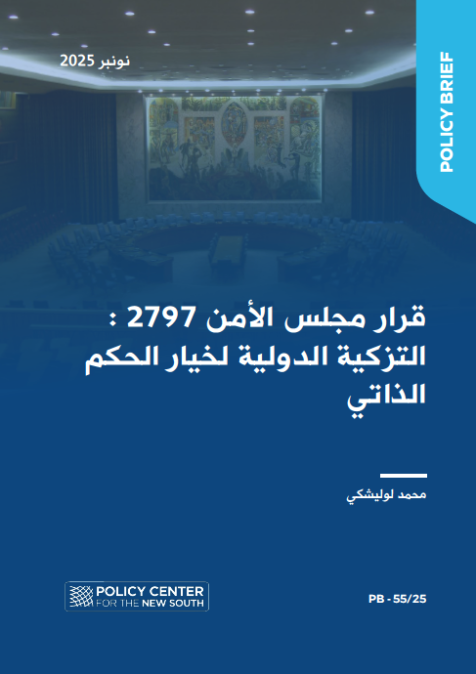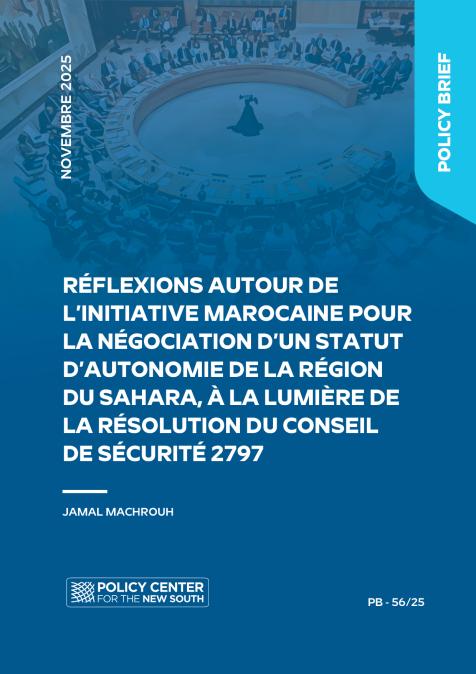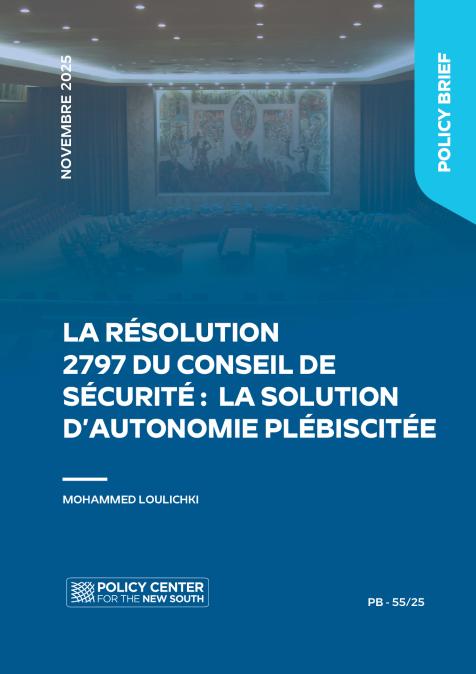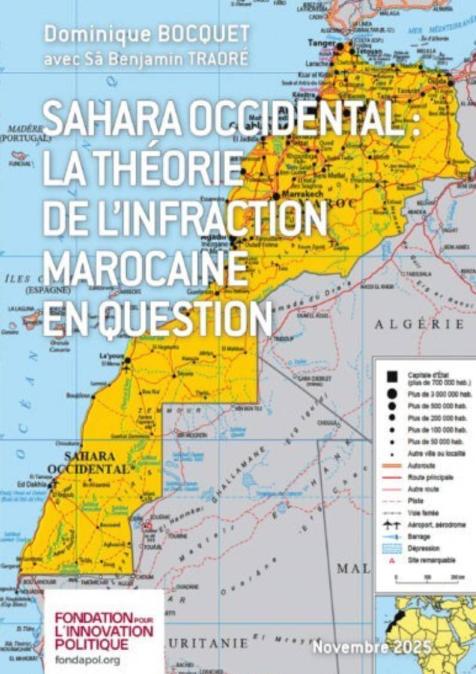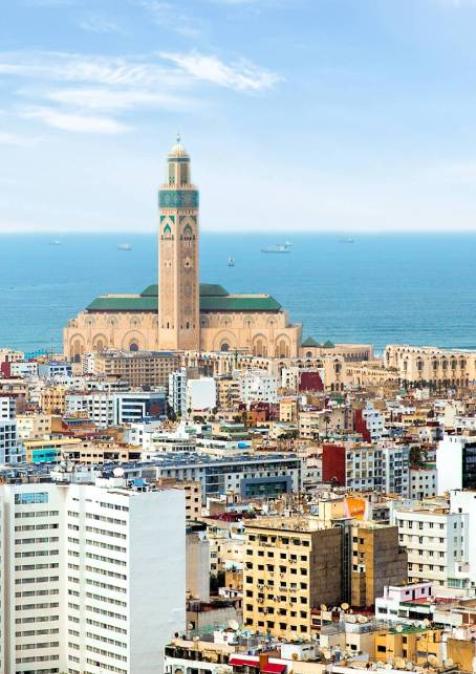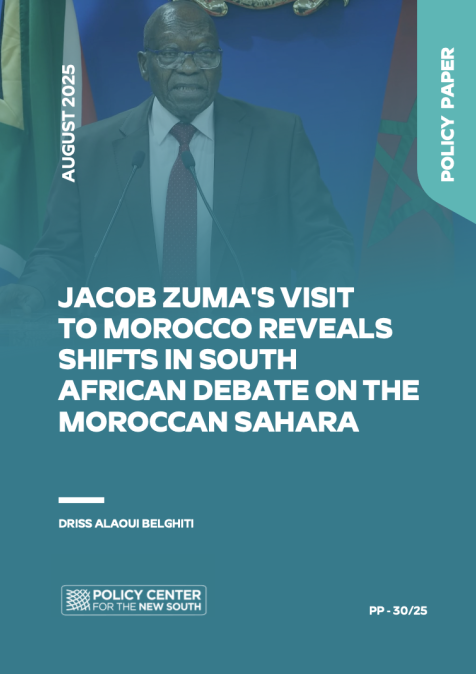Publications /
Opinion
The Opinon was originally published in French on telos-eu.com
As Morocco celebrates the fiftieth anniversary of the Green March, which gave it control of the Western Sahara in November 1975, the UN Security Council has made a spectacular correction to its position on the issue. Its resolution of October 31, 2025 emphasizes the solution of internal autonomy for the Western Sahara within Morocco, relegating the idea of an independence referendum to second place. Autonomy rather than referendum, is a detail that changes everything, and a turning point in the international handling of the issue. Let us try to shed light on this obscure issue.
Initially, the UN criticized the Green March of November 6, 1975, in which 350,000 unarmed Moroccans put an end to Spanish colonization of the territory on the call of King Hassan II. The March triggered a process in which the territory was gathered with Morocco, while the Polisario Front, an Algerian-backed armed movement, demanded independence.
At that time, both the General Assembly and Security Council refused to endorse the Union in Morocco, seeing it as a breach of international law and an illegal occupation. The early days of Hassan II's reign were marked by repression and authoritarianism. In the name of the right of peoples to self-determination, the UN demanded a referendum allowing local populations to have their say. Hence the many proclamations, from all walks of life, extolling the "inalienable right of the Sahraouis to self-determination and independence". In this light, the October 31 resolution comes as a surprise.
In fact, from the outset, two United Nations qualifiers tempered these strong sentences.
The first is practical: a referendum presupposes the definition of the electorate. In 1991, at the time of the ceasefire, a UN Mission was created: the United Nations Mission for the Referendum in Western Sahara (MINURSO in French). The subject proved challenging. These were nomadic people, often spread across several countries: 74,000 people were recorded in the last Spanish census on a territory the size of Italy.
Some of the Sahraouis had joined Morocco after its independence, given Spain’s prolonged occupation of Western Sahara (1956–1975). After the Green March, a larger number fled to Algeria (Tindouf camps, 1975-1976). Since the territory has been largely administered by Rabat, an even greater number of Moroccans from further north have settled there (from 1976 to the present day).
Identifying the real "Sahraoui" voters as of 1975 proved impossible. By 1999, "MINURSO" ceased its work on this aspect to concentrate on peacekeeping. Its title referring to the referendum is therefore theoretical and has been for a quarter of a century.
In addition to the practical obstacle, there was a more fundamental reservation. Very vocal on the idea of self-determination (a notion difficult to deny), the UN was much less forthcoming on the possible consequences, particularly the hypothesis of independence, which it only hinted at. As for the creation of a separate state, this is a prospect that has never been endorsed. To explain this ambiguity of language, Polisario supporters point to the responsibility of France, a permanent member of the Security Council and therefore holder of the veto. It is undeniable that France has acted as a shield for Morocco: no coercive measure against Morocco would have met with Paris approval.
However, the French veto alone cannot account for the UN's restraint: as we know, it does not apply to the General Assembly. The latter has been cautious as well: in fifty years, it has only really put forward the notion of Sahraoui independence only twice (1979 and 1980). This restraint reflected a series of discreet questions, drowned out at the time by passions. The Security Council’s reversal now invites us to revisit them openly.
The most important concerns the characterization of local populations. Do they constitute a nation in the strongest sense, i.e. a people capable of forming the basis of a state? Or are they indigenous populations, of which there are hundreds in Africa and thousands worldwide? The latter have an internationally recognized right to the protection of their identity and to freedom of local administration, but not to the creation of a state. Such a creation, often fragile, could undermine international stability and even backfire on the inhabitants.
In concrete terms, the Sahraouis are made up of three groups of tribes: the Teknas, the Ouled Delim, and the Reguibets. These three groups roamed this immense land separately, meeting only occasionally. They shared the same language, the same religion and, subject to the nomadic lifestyle, the same history with Morocco. In 1976, the Polisario Front proclaimed the sudden abrogation of the tribal fact, intending to corroborate the cause of independence under the UN doctrine on the right of peoples to self-determination.
Should we consider this proclamation as a genuine process of nation-building? This is the first question to ask. It never was. The affirmative answer was taken for granted by the existence of resolutions to this effect, even though these had not been preceded by any real discussion of the issue. It should be added that nomadism implies a minimalist social organization. Between this constraint and the state, there is an antinomy, mentioned in books on international law[1]. In 1962, the creation of a state for the Tuaregs (located on the borders of Niger, Mali, and Algeria) was not even considered, even though this group is far more numerous than the Sahraouis. But in 1975, the year of the Vietnamese FNL's victory over the United States and its local allies, armed movements enjoyed a prestige hard to imagine today. Questioning the legitimacy of the Polisario Front would have been sacrilegious.
Second question: why is Morocco so keen on this territory, and why did France support it? These questions go back to the history of borders in North Africa.
For several reasons, the conditions under which they were established under colonial rule were unfavorable to Morocco. Firstly, Morocco remained independent for a long time (until 1912). It was exposed to European imperialism, which encircled it. Secondly, the Protectorate instituted by the 1912 Treaty of Fez was intended to be provisional, in marked contrast to the status of Algeria, which France believed it had definitively acquired, prompting it to extend it. Finally, Morocco has had not one, but two colonial powers, France and Spain, which has contributed even more significantly to the fragmentation of its territory. At independence, this territory was atrophied. The proportions are debatable, but the fact is acknowledged, even by experts hostile to Moroccan theses[2].
The “Algerian-Moroccan” border has been the subject of many twists and turns. In 1961, Ferhat Abbas's Algerian GPRA committed itself in writing to holding consultations after independence. But the FLN leaders who came to power (1962) did not feel bound by the GPRA's signature. Contrary to what Morocco might believe, this position was not particularly aimed at commitments to Morocco, but rather, initially, at obligations to France. Nevertheless, discussions on the borders never got off the ground. Hence the brief Sand War between the two countries in October 1963. The status quo was maintained. But mistrust was born that would fuel their antagonism on other issues, hence Algeria's support for the Polisario.
Algeria is not directly concerned, as the Western Sahara, located further south, is mostly remote from the Algerian Moroccan border. But rivalry leads each country to seek ways of putting pressure on the other. Moreover, Algeria doubts Morocco's acceptance of its borders. Persistent difficulties in Western Sahara could be seen as a guarantee.
France was aware of the nibbling that Morocco had undergone as a result of its actions: at the time, this had caused tension between the French army in Algeria, which had initiated the nibbling, and civilian officials, who did what they could to oppose it, invoking the obligation of protection they had undertaken towards Morocco.
Even though the Western Sahara was separated from Morocco essentially by the works of Spanish colonization, the territorial injustice suffered by this country led Paris to give it instinctive and unconventional support. Not only was the threat of the veto wielded to block texts too embarrassing for Rabat at the Security Council, but an air force was even dispatched in 1977 against the Polisario, which was aiming to take control of Mauritania[3]. For decades, French diplomatic support for Morocco was deployed in all forums, from New York to Brussels. It was accompanied by intense bilateral dialogue. From the beginning, Paris supported the Autonomy Plan drawn up in 2007 by Mohammed VI to offer a solution compatible with Moroccan sovereignty.
But France's positions were cloaked in discretion for two subtly articulated reasons. On the one hand, Algiers demanded discretion as a kind of consideration, in compensation for its support for Rabat. The Moroccans were perfectly fine with this. Secondly, the legality of the Moroccan presence in Western Sahara had not been recognized by the UN. Paris had no wish to clash head on with the "international law" constituted by the original UN resolutions, nor did Morocco. It was necessary to maintain the goodwill of the United States of America: while rather favorable to the kingdom, they paid great heed to the principle of self-determination. During the Cold War, the Third World was in danger of falling into the Soviet camp. This principle served as Washington's viaticum.
Algiers found great satisfaction in the idea of having the law on its side, even if Morocco was asserting itself on the ground, particularly with the ambitious development policy launched by Mohammed VI in the 2000s.
This fragile balance was upset by Donald Trump in 2020. In line with the Abraham Accords, he unambiguously recognized the Moroccan sovereignty of the Sahara in exchange for Morocco's recognition of Israel. Suddenly, French precautions seemed excessive to Moroccans, who aspired, over time, to see their sovereignty recognized.
This was the backdrop to the crisis between Paris and Rabat in 2023. It ended with the President's letter to the King in 2024, which made it clear that, in France's eyes, the autonomy of the Western Sahara was part of "Moroccan sovereignty, present and future"[4].
Moreover, Morocco's image is no longer that of the 1960s and 1970s. The country has been transformed. The democratic opening begun at the end of Hassan II's Reign, and has been amplified by Mohammed VI. His diplomacy has become more professional and active. In the Western Sahara, development involves not only modern infrastructure, but also generous social benefits and significant initiatives to promote the Sahraouis’ culture. The latter underline a rarely emphasized feature of the Alawite monarchy: its emphasis on tolerance as a source of harmony has not led it to seek cultural standardization. It is hard to see it as a threat to the Sahraouis’ identity.
All these factors explain the Security Council's decision. The fog of UN ambiguities is beginning to lift. Negotiations continue, but the time has come to put all the arguments on the table.
[1] See, for example, Public International Law, Mathias Forteau, Alina Miron and Alain Pellet, 9th edition, LGDJ, 2022. Excerpt from page 597: “The modern State population is a sedentary population, settled within the borders of a State territory. The idea of a nomadic (or deterritorialized) State is incompatible with the modern conception of the State.”
[2] The resolution of the conflict must now be conceived within the framework of an international conference,” an op-ed published by a group of academics at the initiative of Khadija Mohsen-Finan and Jean-Pierre Sereni, Le Monde, February 16, 2023.
[3] Operation Lamantin (1977–1978).
[4] Message from the President of the French Republic to the King of Morocco dated July 30, 2024.

